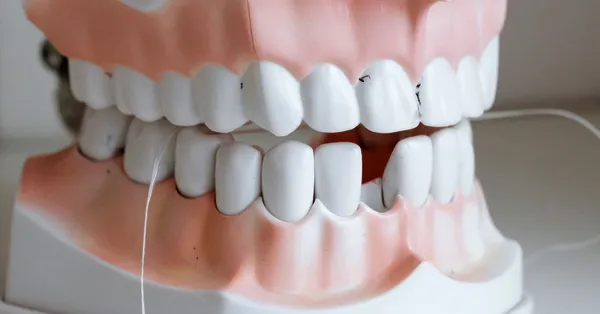Understanding Tooth Loss and Your Oral Surgery Treatment Options
According to the American College of Prosthodontists, approximately 178 million Americans have lost at least one permanent tooth, with some 40 million of them having no teeth left at all. Tooth loss does more than create challenges in eating, smiling, and talking; it can also affect your overall health. Fortunately, oral surgery procedures such as dental implants can help you regain your smile and optimize your dental function permanently. Take a look at the causes and effects of tooth loss, along with the treatment options available from skilled oral surgeons.
Causes of Tooth Loss
People may lose teeth for a variety of reasons. Here are some of the most common issues that might cause you to lose one or more teeth.
- Periodontal disease - Most cases of tooth loss stem from this preventable inflammatory gum condition. When food particles and saliva get stuck to the teeth around the gum line, bacteria flock to the resulting plaque as a food source. The immune system reacts to the bacteria by mounting an inflammatory response against it. Unfortunately, the inflammation damages the gum tissue surrounding the teeth and weakens the ligaments that hold the teeth in their sockets, potentially leading to tooth loss.
- Acute injuries or tooth problems - A blow to the face from a fist, ball, auto accident, or other high impact can knock teeth out of their sockets. (Emergency dentists can sometimes reseat these knocked-out teeth and secure them in place until they heal.) A tooth fractured down to the root, erupted at an angle that threatens neighboring teeth, or decayed beyond all hope of repair might require extraction, leaving you with a gap in your smile.
- Tobacco and alcohol use - Tobacco use not only increases your risk for periodontal disease but also reduces your body's ability to fight off infections, including oral infections that threaten the stability of your teeth. Excessive alcohol consumption can leave you with a chronically dry mouth, reducing the saliva that normally coats the teeth and helps to safeguard them against catastrophic decay.
- Underlying conditions - Untreated malnutrition, high blood pressure, diabetes, and even arthritis can make you more vulnerable to tooth loss.
How Tooth Loss Affects Facial Aesthetics and Your Health and Functionality
Missing teeth affect the aesthetics of not only our smile, but also of the facial contour and symmetry. Each tooth and tooth-root provide support to our jaw bones and facial muscles. Similar to how grasses at the beach provide anchor to sand, the roots of our teeth help to anchor bone. Missing roots eventually causes surrounding bone to melt away, causing facial structures to have a hollowed out look and show signs of premature ageing.
See our videos about this:
When you have missing teeth, you can't chew food efficiently. Poor chewing function can make you prone to indigestion, malabsorption of nutrients, and other digestive complaints. You may also develop a heightened risk for gum disease that threatens not just your other teeth, but every system in your body, as bacteria migrate from your gums to major organs.
Tooth loss can affect your ability to talk clearly and smile with confidence in conversations. However, that gap in your smile may prove only the beginning of a more long-term change in your looks. Without constant stimulation from tooth roots, the bone in the jaw stops remodeling itself. The loss of bone density can reduce the height of your jaws, eventually giving your face a "collapsed" look.
How an Oral Surgeon Can Help You Deal with Tooth Loss
Adults who have lost teeth have traditionally done whatever they can to fill those gaps in their smile through dental restorations, from bridges that replace individual teeth to full upper and lower dentures. Unfortunately, these replacements have their limitations. For instance, a removable bridge or denture plate can feel loose in the mouth or even get dislodged, making chewing an adventure and threatening public embarrassment. More critically, bridges and dentures only restore the part of the teeth that used to sit above the gum line, not the root structures that anchored the natural teeth to the jawbone, so they can't stop you from losing bone density.
Your oral surgeon can help you avoid these issues by performing dental implant surgery. Dental implants feature screw-like threaded metal posts capped with permanent crowns. Once the metal posts go into your jawbone, the bone responds by growing into(and in between) the posts' threads, a phenomenon called osseointegration. This process takes a few months to complete, but you'll end up with strong, tightly anchored artificial tooth roots that actually promote continuous bone remodeling. The oral surgeon will then add permanent crowns to the posts, giving you a beautiful smile and dental restorations you can rely on for decades to come.
If you have already lost some jawbone density from going without teeth, don't panic. Your oral surgeon can often surmount this challenge as well by performing a bone graft. In this form of oral surgery, a small amount of organic or synthetic bone fills out the thin parts of the jawbone, providing the firm foundation your implants will require. Just keep in mind that you must heal completely from your bone graft before proceeding with the implant surgery.
Dental implant surgery can work equally well for you whether you seek to replace a single tooth or a whole mouthful of teeth. Oral surgeons can create entire denture plates that snap onto just a handful of implanted posts in the upper and/or lower jaw. You may hear this kind of restoration referred to as a four-on-one or six-on-one dental implant.
Don't let tooth loss rob you of your ability to smile, talk, and eat with confidence. Contact Woodview Oral Surgery today to learn more about your dental restoration options!






5 Stars
based on 48 reviews
5 Stars
based on 15 reviews
5 Stars
based on 11 ratings